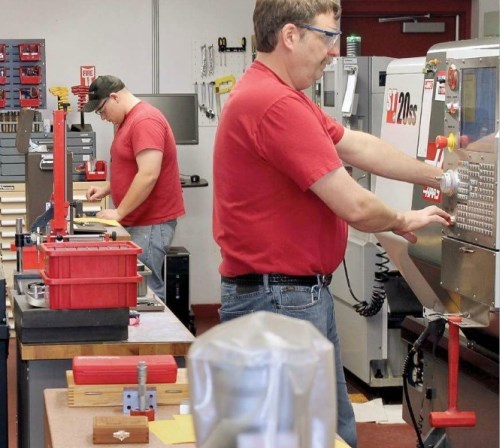Another School “Real Shop” Example
Learn about a manufacturing education program that functions as a student-run machining business.
Share





The NCMM offers students real-world experience in the business of operating a machine shop.
(Photo courtesy of NMCC.)
Most readers of this blog are familiar with Cardinal Manufacturing, the Wisconsin high school manufacturing program that functions as a student-run machining and fabrication business. Recently, I learned about a similar operation in Presque Isle, Maine.
Dean Duplessis is the manufacturing instructor for the Precision Metals program at Northern Maine Community College (NMCC). Like Cardinal, the NMCC program instructs would-be machinists by having them make real parts for real customers just like any job shop would. Dean says the program is non-revenue generating. Its customers pay for materials, tooling, shipping and the like. Its volumes vary from 250 to 1,000 pieces, and there’s a good deal of repeat work. All jobs have travelers, setup instructions, inspection instructions and so on, so students are fully accountable for all work.
NMCC doubles as a Haas Technical Education Center. Learn more about the program in this article found in Haas’s CNC Machining magazine.
Related Content
-
How I Made It: Amy Skrzypczak, CNC Machinist, Westminster Tool
At just 28 years old, Amy Skrzypczak is already logging her ninth year as a CNC machinist. While during high school Skrzypczak may not have guessed that she’d soon be running an electrical discharge machining (EDM) department, after attending her local community college she found a home among the “misfits” at Westminster Tool. Today, she oversees the company’s wire EDM operations and feels grateful to have avoided more well-worn career paths.
-
How to Pass the Job Interview as an Employer
Job interviews are a two-way street. Follow these tips to make a good impression on your potential future workforce.
-
Workholding Fixtures Save Over 4,500 Hours of Labor Annually
All World Machinery Supply designs each fixture to minimize the number of operations, resulting in reduced handling and idle spindle time.






















